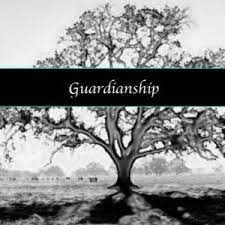New Power of Attorney as of 6-13-2021
7066635231 • June 8, 2021
This changes will NOT impact the validity of previously executed Power of Attorney's ("POA") form and Statutory Gift Rider ("SGR") if properly executed.
On December 15, 2020 Governor Andrew Cuomo signed into law changes to the New York Power of Attorney ("POA") law which take effect on June 13, 2021.
What is a Power of Attorney (“POA”)?
A POA is a document that appoints an individual to handle financial matters on one’s behalf. The POA differs from the health care proxy in that it is for financial matters (not health related), and it is effective upon execution not upon incapacitation unless specified. While this is a very powerful document and misuse by an agent could cause great financial harm, it is a very important document to have in place. Failure to do so could lead to a potential guardianship proceeding in a crisis situation, which can be both time consuming and costly. For this document you can appoint more than one person to act on your behalf jointly or severally.
What changes are being made to the new Power of Attorney?
There are four major changes to the new POA law:
1. Substantial Conformity Standard: Previously, the law's standard was strict adherence to the statute which caused many documents rendered invalid due to insignificant errors. The new law allows for wiggle room where the form should be considered in its entirety to decide whether it has met substantial conformity with the statute so that insignificant errors such as typos or spelling errors do not render the document invalid.
2. Elimination of the Gifts Rider:
The current POA consists of two (2) distinct parts; the statutory short form and the Statutory Gift Rider ("SGR") which was optional. This was done to prevent fraud and financial abuse but has led to much confusion. To rectify this issue, the new POA does not have include the SGR but enables the principal to modify the Standard form to authorize gifts over $5,000.00 annually.
3. Signature at the Direction of the Principal: The current law does not allow anyone other than the principal to sign the POA, making it a complicated process for handicapped individuals. The new POA law permits a principal to direct someone (who is not either an agent or successor agent), while in the presence to sign the POA on his or her behalf.
4. Sanctions for Bank Refusal to Honor the POA: The new law affords protections for principals against third parties (such as banks) unreasonably refusing to accept a POA. Third parties now have ten (10) business days to honor or reject the form. If a third party rejects a POA, they have ten (10) business days to provide a written rejection AND the principal may be able to bring a special proceeding to compel a third party to honor the POA. If a proceeding is brought and the court finds that the third party acted unreasonably, the court is authorized to award damages to the principal.
If you do not have a Power of Attorney in place, you should call to schedule an appointment today.

A guardianship may not only be a useful tool in many situations, but for some it may be the only option. A guardianship is an arrangement where the court appoints a person to make various decisions for another individual when that individual does not have the cognitive ability to do so themselves, does not have health care proxy in place appointing someone to make medical decisions for them, and/or does not have a power of attorney in place in appointing an individual to handle their finances. The types of decisions the guardian may make for that individual, as well as the extent of the power to make those decisions, depends on the type of guardianship and the abilities of the individual over whom the guardianship is sought (this individual is referred to as the “ward”). A guardian can be in charge of the decisions regarding the ward’s person, property, or both, depending on the type of guardianship and the reason it is needed. In New York there are three types of guardianship's: Article 17, Article 17A and Article 81. Article 17 guardianship's are guardianship's for minors. This type of guardianship is necessary either when a minor inherits money or when a minor’s parents are no longer able to care for the child. This proceeding is brought in Surrogate’s Court or in Family Court, depending on the details of the case. Article 17A guardianship's are used to appoint a guardian for an adult individual who is intellectually or developmentally disabled prior to obtaining the age of 21. This proceeding is often filed in Surrogate’s Court as well and requires that specified professionals provide certifications to the court evidencing that the ward has a diagnosed disability and is unable to manage his or her affairs due to that disability. Lastly, Article 81 guardianship proceedings are for adults who have become disabled at any point during their lifetime. Medical evidence is not needed and often not accepted by the court. Incapacity can be shown through the ward’s inability to care for him or herself and/or the inability to manage his or her property or finances on their own. To determine the necessity of a guardian for the ward, the Court will look at the functional limitations of that individual. The Supreme Court oversees Article 81 guardianship cases and they are tailored to the specific needs of the incapacitated individual. When a guardian is appointed over a ward’s person, property, or both, the ward loses the legal ability to make decisions regarding those issues, which is a severe limitation on their rights. As such, the courts are extremely prudent in their appointments and they have many safeguards in place to ensure that the ward has an effective advocate if they are unable to advocate for themselves. Navigating these guardianship proceedings can be an extremely overwhelming process. There are many intricacies required by the Courts which if not properly addressed, can result in a negative outcome that could be detrimental to an individual who truly needs the assistance of a guardian. If you need assistance regarding a potential guardianship proceeding, contact Kim Smith Law Group, PLLC at 631-683-1004 to set up an appointment.

A digital asset is defined as “an electronic record in which an individual has a right or interest.” Examples of digital assets include an email account, a Facebook page, a YouTube channel, a Twitter account, and many more. As more individuals have become more dependent on their computers, the cloud, and the internet, the classification of what is considered one’s assets has expanded. In September of 2016, New York expanded it statutes to address the growing issue of digital assets. Prior to the adoption of this law, a personal representative of an estate had little access to a decedent’s digital accounts and/or assets. The law now requires a custodian of these electronic records to disclose to the decedent’s personal representative, “a catalogue of electronic communications sent or received by the deceased user.” This ensures that a personal representative will at least be entitled to the decedent’s contact list; however, it does not ensure access to the decedent’s electronic content. The only way to ensure that a personal representative will have no obstacles when attempting to access a decedent’s digital assets is to address it in the decedent’s Will. A Will can explicitly allow a personal representative to take any actions necessary in dealing with the decedent’s estate. This will guarantee that digital assets are appropriately taken care of upon ones passing. This is one of the many reasons why it is important for people to periodically review and update their Last Will and Testaments. In addition, we advise our clients to create a “personal book” to keep track of all their important information in order to assist their family members in the event of an emergency. Such information can include doctors’ contact information, the location of pertinent documents, and the existence of insurance policies to name a few. It would also be an ideal location for usernames and passwords for the client’s digital assets. For additional information about digital assets and the effect they may have on your estate plan, contact Kim Smith Law Group PLLC.

Different types of trusts are used in Estate Planning for an array of reasons as trusts are extremely useful tools for managing property while providing flexibility. A trust can be created during a person’s lifetime which is called a living trust, or upon one’s death which is a testamentary trust. Furthermore, trusts used for Estate Planning can be either Revocable Trusts or Irrevocable Trusts, which differ greatly. A Revocable Living Trust provides for the orderly management of the assets placed into the Trust during the Settlor’s lifetime, as well as provides for the distribution of those assets upon the Settlor’s death without. Assets placed into a Revocable Living Trust transfer on death to the named beneficiaries without the need of going through the courts for probate. Although the probate process in New York State can be relatively simple, that may not be the case in other states in which property may be held or in times of a pandemic when courts have closed and are not allowing the filing of new “nonessential” matters. Out of state property not held by a trust and without a named co-owner, must be administered through the probate process in the state where it is located. This adds delays and expenses to the administration of an estate. A Revocable Living Trust may be a good alternative in this situation, as any Trust property, in any state, can be distributed by the Trustee upon the Settlor’s death without court intervention. A Revocable Living Trust may be revoked by the Settlor at any time during his or her lifetime. The Settlor may act as the Trustee or can appoint a trustee of his or her choosing. The Trustee is the person who manages the trust assets during the Settlor’s lifetime and distributes them in accordance with the terms of the Trust upon the Settlor’s death. This type of trust is extremely flexible in that the terms of the Trust can be changed at any point in time and assets can be added or removed at the discretion of the Settlor and/or Trustee. An Irrevocable Trust is typically used to protect assets during the Settlor’s lifetime for purposes of long-term care or creditor protection or for purposes of providing a vehicle for estate tax planning purposes. Irrevocable Trusts allow for similar benefits of a Revocable Living Trust, but also provide an extra layer of asset protection. When creating an Irrevocable Trust, the Settlor generally will not be the Trustee. In order for the Trust to maintain its protection benefits, the Trustee should not have the ability to invade the principal on the Settlor’s behalf. However, this does not prohibit the Settlor from receiving the income generated from any of the trust property. As with a Revocable Living Trust, any assets placed in an Irrevocable Trust are not subject to a probate proceeding. If you are interested in discussing which type of trust is best for you, contact Kim Smith Law Group for more information or to set up an appointment.

Every adult should have an Estate Plan in place and if you already have one in place it is extremely important that you revisit your plan upon major life events such as marriage, divorce, the birth of a child or grandchild, retirement, death, etc. in order to ensure that your plan still follows your wishes. A basic Estate Plan normally includes a Last Will and Testament; Durable Power of Attorney; Health Care Proxy; and Living Will. Your Last Will & Testament directs the distribution of your assets upon your death and helps avoid conflict among your beneficiaries as it clearly expresses your wishes. It directs how and to whom you want your property distributed, as well as appoints an individual to be in charge of your Estate known as an Executor. If this distribution includes minors such as children or grandchildren, the Will would include a minor’s trust to hold the funds until they were of an age of majority that you choose and monitored by a person of your choice. A Will can also include provisions to protect disabled beneficiaries and assets from creditor claims. A Durable Power of Attorney appoints an individual of your choosing to handle financial matters on your behalf in the event that you are unable to do so. If a crisis situation were to arise and there is no Durable Power of Attorney in place, the alternative would be a guardianship proceeding which can be both time consuming and costly. A Health Care Proxy is a document which appoints an individual to make health care decisions on your behalf in the event that you are unable to do so. In conjunction with a Health Care Proxy, a Living Will provides the individual appointed under your Health Care Proxy with your health care wishes and directions in the event you become seriously ill and unable to communicate. A Living Will provides your agent under your Health Care Proxy with your health care wishes and directions were you to become seriously ill and unable to communicate. The directives normally include instructions as to whether you would or would not want feeding and hydration, life support, kidney dialysis, cardiac resuscitation and other health care decisions were you in an irreversible vegetative state with no chance of recovery. To discuss these documents or your Estate Plan, contact Kim Smith Law Group, PLLC to set up an appointment.

When a loved one passes away, it is often an emotional time and one may feel like they are in a state of limbo. If the decedent owned property that is not jointly titled with another person, which does not have a named beneficiary or transfer on death, or for any property which is owned by the individual alone, their Estate must be administered in order to collect the asset and distribute it to the new rightful owner. This process is a legal proceeding that is completed through the Surrogate’s Court in the county in which the decedent lived at the time of his or her death. In the event the decedent had a Last Will and Testament, a “Probate” proceeding will be required, and the appointment of the Executor and the distribution of the Estate would be determined by the terms of the Will. The nominated executor is normally the individual who would file a Petition with the Court to be appointed. He or she would become the personal representative of the Estate who, once appointed, would be able to carry out the administration of the Estate. The administration of the Estate would include duties such as securing the property, paying the expenses of the decedent and the estate, filing taxes, and distribution of the estate to the beneficiaries. If, however, the decedent died without a Will, then an “Administration” proceeding will need to be initiated. This proceeding would also be brought in the Surrogate’s Court in the county in which the decedent lived at the time of his or her death. In this case, a personal representative of the Estate is appointed by the Court upon the petition of an individual that is interested in the Estate. The appointed individual is referred to as the Administrator. Because there is no Will to direct the distribution of the assets, the property is distributed in accordance with the intestate statutes of the state in which decedent lived at the time of his or her death. The statutes differ for each state but generally direct the property to pass to the closest living relatives in a specific pre-determined pattern. It is important to know if the decedent owned property in another state at the time of his or her death as additional proceedings would be required in those states. If the property was held by a Trust, this would avoid the need to Probate in multiple states. If you are dealing with the passing of a loved one and need assistance, feel free to contact Kim Smith Law Group, PLLC.

Unlike Medicaid benefits for Nursing Home care, there is currently NO look-back period in order to qualify and be eligible for Community Medicaid or home care based services. What this means is that an individual can transfer assets one month and be eligible for Medicaid home care benefits the next month if they meet certain criteria. An applicant for home care benefits may only have a total of $15,750.00 worth of resources in their name, which is inclusive of bank accounts, cash values of life insurance policies, current values of stock, etc. This does not include qualified assets (pre-taxed retirement assets) such as IRAs, 401Ks, and 403Bs if required minimum distributions (RMD's) are being taken. The second prong of qualification for eligibility is based on the applicant’s monthly gross income. The applicant is only allowed $895.00 in income each month ($875.00 plus $20.00 per household for 2020) after payment of health insurance premiums. If the applicant’s current monthly income is over this amount they would have an “overage”. This “overage” can be deposited to a pooled trust that can be utilized to pay monthly non-medical bills. A pooled trust is a fund which holds excess income for disabled individuals who need to qualify for Medicaid in order to receive long term care benefits in the community. Each individual has their own account in which to deposit their overage. The pooled trust company charges a monthly service fee based on the amount of income put into the account each month and often includes a start-up fee. The financial responsibilities to the Pooled Trust are based upon the Department of Social Services monthly income calculations and determined “overage”. Conveniently, the monthly deposit can be set up to automatically debit every month from the applicant’s checking account. The monies deposited into the Pooled Trust account each month can then be used for the applicant’s non-medical bills. Once the pooled trust is approved, a representative from the pooled trust will contact the applicant or point person to discuss the process and allowable expenses that they will cover and pay. Please note, we do not recommend leaving a significant amount of money in the pooled trust as it is absorbed by the pooled trust company at the time of the trust holder’s passing or admittance into a nursing home. The last step in the eligibility process occurs once the applicant is financially approved for Medicaid benefits. At that point in time two medical assessments would be implemented. The first is done to determine if the applicant is a candidate for homecare services and the second is to determine the number of hours the applicant would be entitled to. This process can take several months to get the necessary services in place; therefore, it is important to begin the application process as soon as possible. In addition, beginning October 1, 2020, there will be drastic changes to this program as a thirty (30) month look back period will be implemented wherey any transfers made by the applicant for eligibility purposes will trigger a penalty period for which they will be ineligible for Medicaid coverage of home care services. Contact our office for more information on how to obtain long term home care services.






Share On: